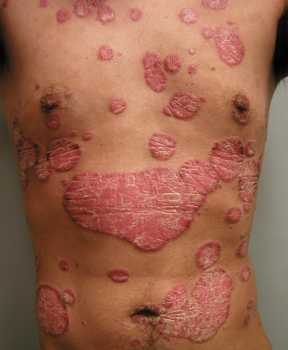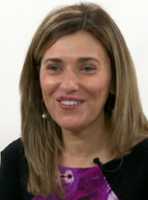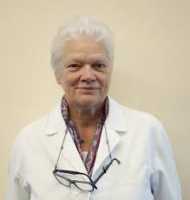MedicalResearch.com Interview with:
Michael K. Scullin, Ph.D.
Assistant Professor of Psychology and Neuroscience
Director, Sleep Neuroscience and Cognition Laboratory
Baylor University
Waco, TX 76798
MedicalResearch.com: What is the background for this study? What are the main findings?
Response: There is a gap between what health behaviors individuals know they should adopt, and what those individuals actually end up doing. For example, a growing literature shows that simply educating students on the importance of sleep does not change their sleep behaviors. Thus, we need to think outside of the box for solutions.
In three classes, we have now investigated a motivational solution: if students can earn extra credit on their final exam for sleeping better, will they do so even during finals week?
(more…)
Author Interviews, Cost of Health Care, Hematology, J&J-Janssen, Thromboembolism / 04.12.2018
Healthcare Costs in Patients with Cancer Rise with Increasing Risk of Venous Thromboembolism
MedicalResearch.com Interview with:
Paul Burton MD, PhD, FACC
Vice President, Medical Affairs
Internal Medicine
Janssen Scientific Affairs, LLC.
MedicalResearch.com: What is the background for this study? What are the main findings?
Response: Despite being largely preventable, venous thromboembolism (VTE) is the second leading cause of death in people with cancer. The risk of VTE is five times greater in people with cancer than those without cancer, and that risk is magnified in those receiving certain types of chemotherapy, in the newly diagnosed and in those with more advanced, metastatic disease. This 6,194-patient study examined economic burden associated with VTE, and found patients newly diagnosed with cancer who are at a higher risk of a VTE had significantly higher all-cause and VTE-related health care costs compared to patients with a lower risk of VTE. (more…)
Author Interviews, Clots - Coagulation, Hematology, J&J-Janssen / 04.12.2018
Lower Overall Costs with Rivaroxaban (XARELTO® ) vs Warfarin Among Morbidly Obese Patients with Venous Thromboembolism
MedicalResearch.com Interview with:
Paul Burton MD, PhD, FACC
Vice President, Medical Affairs
Internal Medicine
Janssen Scientific Affairs, LLC.
MedicalResearch.com: What is the background for this study? What are the main findings?
Response: Treatment of venous thromboembolism (VTE) is complicated among morbidly obese patients. Current guidelines do not recommend use of Factor Xa inhibitors in these patients due to limited clinical data available. That's why Janssen undertook this study to examine XARELTO® (rivaroxaban) in these patients. In this 5,780-patient retrospective study, results found patients treated with XARELTO® had a similar risk of recurrent VTE and major bleeding compared to those taking warfarin.
However, treatment with XARELTO® was associated with less all-cause health care resource utilization (HCRU) (e.g., inpatient hospitalizations and outpatient visits) and reduced total medical costs compared to warfarin. Of note, patients taking XARELTO® had an average $2,829 lower total medical costs per patient per year (PPPY) than those taking warfarin, which was mainly driven by lower hospitalization costs. (more…)
Author Interviews, FDA, JAMA, Medical Imaging / 04.12.2018
Computer Simulation Study Favors Tomosynthesis over Digital Mammography
MedicalResearch.com Interview with:
 Aldo Badano, Ph.D.
Deputy Director, Division of Imaging, Diagnostics, and Software Reliability
Office of Science and Engineering Laboratories
Center for Devices and Radiological Health Silver Spring, MD 20993
MedicalResearch.com: What is the background for this study? What are the main findings?
Response: Expensive and lengthy clinical trials can delay regulatory evaluation of innovative technologies, affecting patient access to high-quality medical products. Although computational modeling is increasingly being used in product development, it is rarely at the center of regulatory applications.
Within this context, the VICTRE project attempted to replicate a previously conducted imaging clinical trial using only computational models. The VICTRE trial involved no human subjects and no clinicians. All trial steps were conducted in silico. The fundamental question the article addresses is whether in silico imaging trials are at a mature development stage to play a significant role in the regulatory evaluation of new medical imaging systems. The VICTRE trial consisted of in silico imaging of 2986 virtual patients comparing digital mammography (DM) and digital breast tomosynthesis (DBT) systems.
The improved lesion detection performance favoring DBT for all breast sizes and lesion types was consistent with results from a comparative trial using human patients and radiologists. (more…)
Aldo Badano, Ph.D.
Deputy Director, Division of Imaging, Diagnostics, and Software Reliability
Office of Science and Engineering Laboratories
Center for Devices and Radiological Health Silver Spring, MD 20993
MedicalResearch.com: What is the background for this study? What are the main findings?
Response: Expensive and lengthy clinical trials can delay regulatory evaluation of innovative technologies, affecting patient access to high-quality medical products. Although computational modeling is increasingly being used in product development, it is rarely at the center of regulatory applications.
Within this context, the VICTRE project attempted to replicate a previously conducted imaging clinical trial using only computational models. The VICTRE trial involved no human subjects and no clinicians. All trial steps were conducted in silico. The fundamental question the article addresses is whether in silico imaging trials are at a mature development stage to play a significant role in the regulatory evaluation of new medical imaging systems. The VICTRE trial consisted of in silico imaging of 2986 virtual patients comparing digital mammography (DM) and digital breast tomosynthesis (DBT) systems.
The improved lesion detection performance favoring DBT for all breast sizes and lesion types was consistent with results from a comparative trial using human patients and radiologists. (more…)
 Aldo Badano, Ph.D.
Deputy Director, Division of Imaging, Diagnostics, and Software Reliability
Office of Science and Engineering Laboratories
Center for Devices and Radiological Health Silver Spring, MD 20993
MedicalResearch.com: What is the background for this study? What are the main findings?
Response: Expensive and lengthy clinical trials can delay regulatory evaluation of innovative technologies, affecting patient access to high-quality medical products. Although computational modeling is increasingly being used in product development, it is rarely at the center of regulatory applications.
Within this context, the VICTRE project attempted to replicate a previously conducted imaging clinical trial using only computational models. The VICTRE trial involved no human subjects and no clinicians. All trial steps were conducted in silico. The fundamental question the article addresses is whether in silico imaging trials are at a mature development stage to play a significant role in the regulatory evaluation of new medical imaging systems. The VICTRE trial consisted of in silico imaging of 2986 virtual patients comparing digital mammography (DM) and digital breast tomosynthesis (DBT) systems.
The improved lesion detection performance favoring DBT for all breast sizes and lesion types was consistent with results from a comparative trial using human patients and radiologists. (more…)
Aldo Badano, Ph.D.
Deputy Director, Division of Imaging, Diagnostics, and Software Reliability
Office of Science and Engineering Laboratories
Center for Devices and Radiological Health Silver Spring, MD 20993
MedicalResearch.com: What is the background for this study? What are the main findings?
Response: Expensive and lengthy clinical trials can delay regulatory evaluation of innovative technologies, affecting patient access to high-quality medical products. Although computational modeling is increasingly being used in product development, it is rarely at the center of regulatory applications.
Within this context, the VICTRE project attempted to replicate a previously conducted imaging clinical trial using only computational models. The VICTRE trial involved no human subjects and no clinicians. All trial steps were conducted in silico. The fundamental question the article addresses is whether in silico imaging trials are at a mature development stage to play a significant role in the regulatory evaluation of new medical imaging systems. The VICTRE trial consisted of in silico imaging of 2986 virtual patients comparing digital mammography (DM) and digital breast tomosynthesis (DBT) systems.
The improved lesion detection performance favoring DBT for all breast sizes and lesion types was consistent with results from a comparative trial using human patients and radiologists. (more…)
Annals Internal Medicine, Author Interviews, Heart Disease, Infections, Opiods / 04.12.2018
Marked Increase in Infected Heart Valves Due to Injected Opioids
MedicalResearch.com Interview with:
Asher Schranz, MD
Division of Infectious Disease
Department of Medicine
UNC School of Medicine
MedicalResearch.com: What is the background for this study?
Response: The opioid crisis has led to several major infectious diseases concerns, including HIV and Hepatitis C.
Drug use-associated infective endocarditis (DUA-IE) is a less commonly discussed consequence of the opioid epidemic. DUA-IE is an infection of one or more heart valves that occurs from injecting drugs. It can be a severe, life-threatening infection and requires a long course of intravenous antibiotics as well as, in some cases, open heart surgery to replace an infected heart valve. Several studies over the past few years have shown that DUA-IE has been increasing.
Our study examined hospital discharges in North Carolina statewide from 2007 to 2017. We sought to update trends in DUA-IE and describe how much heart valve surgery was being performed for DUA-IE. We also aimed to report the demographics of persons who are undergoing heart valve surgery for DUA-IE and the charges, lengths of stay and outcomes of these hospitalizations. (more…)
Author Interviews, Cancer Research, Hematology, J&J-Janssen / 04.12.2018
How Do Patients With Multiple Myeloma Weight Treatment Options?
MedicalResearch.com Interview with:
Caroline McKay, PhD
Real World Value & Evidence, Oncology
Janssen Scientific Affairs
MedicalResearch.com: What is the background for this study? What are the main findings?
Response: Considering patient preferences in treatment decision-making in oncology is growing in importance. While recent introduction of new treatments for multiple myeloma have improved survival and the possibility of sustaining longer remission periods, regimen options still vary with respect to efficacy, safety, and dosing.
Therefore, patients and providers must consider tradeoffs inherent in making treatment decisions that are growing in complexity. Despite this, there is a lack of research describing patient preferences within the context of currently available treatment regimens. To address this gap, this study examined how multiple myeloma patients evaluate, or weigh, treatment options. Key findings from the research are that treatment preferences do not appear to be static, but instead suggest that the relative importance of treatment attributes may change over time and treatment history.
Further, patients place higher importance on overall survival and progression-free survival than other treatment attributes, and may be willing to accept an increase in the risk of serious side effects and reduced convenience in exchange for greater efficacy; however, when efficacy is comparable, patients appear to place greater weight on dosing frequency than on the duration of treatment administration, i.e., more frequent dosing appears to be less preferable to patients than longer administration/infusion time. (more…)
Annals Internal Medicine, Author Interviews, Lipids, Pharmacology / 04.12.2018
Age, Gender and Drug Should Factor Into Statin Recommendation
MedicalResearch.com Interview with:
Prof. Dr. Milo Puhan
Epidemiology, Biostatistics and Prevention Institute
University of Zurich
MedicalResearch.com: What is the background for this study? What are the main findings?
Response: The use of statins for primary cardiovascular prevention is controversial and there is a debate at what risks statins provide more benefits than harms.
Current guidelines recommend statins if the 10 year risk for cardiovascular events is above 7.5 to 10% and they do not distinguish between men and women, different age groups and different statins.
We found in our study that the benefits of statins exceeds the harms if the 10 year risk for cardiovascular events is above 14% for middle aged mean (40-44 years) but even higher for older age groups, and women.
In addition, the benefit harm balance varies substantially between different statins with atorvastatin providing the best benefit harm balance.
(more…)
Author Interviews, Dermatology, Lipids / 04.12.2018
Psoriasis: Experimental Use of Lipid Molecule to Supress Inflammation
MedicalResearch.com Interview with:
Wendy Bollag, PhD, FAHA
Professor of Physiology
VA Research Career Scientist
Augusta University, Georgia
MedicalResearch.com: What is the background for this study?
Response: We have previously shown that the lipid (fat) phosphatidylglycerol (PG) is able to inhibit rapidly growing keratinocytes (skin cells) and promote their maturation. We also found that PG can suppress skin inflammation.
Since the common skin disease psoriasis is characterized by inflammation and excessive growth and abnormal maturation of skin cells, we believed that PG might be useful as a treatment. However, the mechanism of its anti-inflammatory effect was unknown. PG in the lung has been found to inhibit inflammation induced by microbes or their components, which work by activating the innate immune system via binding to proteins called toll-like receptors (TLRs); however, psoriasis is not considered to be an infectious disease.
We hypothesized that PG would also inhibit inflammation induced by anti-microbial peptides that activate TLRs. Anti-microbial peptides, produced normally by the skin to protect against infection, are known to be excessively up-regulated in psoriatic skin. (more…)
Author Interviews, Dental Research, JAMA, Opiods, Pediatrics / 03.12.2018
Wisdom Teeth Extractions Can Lead to Opioid Addiction in Adolescents and Young Adults
MedicalResearch.com Interview with:
Alan Schroeder MD
Associate Chief for Research
Division of pediatric hospital medicine
Lucile Packard Children’s Hospital Stanford
MedicalResearch.com: What is the background for this study? What are the main findings?
Response: Third molar “wisdom teeth” extractions are one of the most common surgeries performed in adolescents and young adults, but an adequate appraisal of risks and benefits is lacking. Most patients who undergo this procedure are exposed to opioids post-operatively.
We demonstrate that, for privately-insured opioid-naïve patients 16-25 years of age, exposure to opioids from a dental provider is associated with persistent use at 90-365 days in 7% of patients and a subsequent diagnosis relating to abuse in 6% of patients. In contrast persistent use and abuse were significantly lower in control patients not exposed to dental opioids (0.1% and 0.4%, respectively). The median number of pills dispensed for the initial prescriptions was 20.
(more…)
Author Interviews, Breast Cancer, Mammograms / 03.12.2018
Women Benefit from Mammography Screening Beyond Age 75
MedicalResearch.com Interview with:
Stamatia Destounis MD, FACR, FSBI, FAIUM
Elizabeth Wende Breast Care
Clinical Professor University of Rochester Imaging Sciences
Rochester, NY 14620
MedicalResearch.com: What is the background for this study? What are the main findings?
Response: The current breast cancer screening recommendations in the United States are unclear regarding when to stop screening. Several societies with published recommendations conflict in regard to when to discontinue screeningmammography. There is little evidence studying the benefit of annual mammography in the population of women 75 and older.
Due to this, we felt that it was a very important and timely topic to investigate, with the goal of providing further guidance on why screening mammography may be beneficial in this older population.
(more…)
Mineral Metabolism / 03.12.2018
The Titanium-Plated Future In Medicine
Titanium’s vast array of uses in medical science, as well as other fields, points toward our civilization heading into a...
Anemia, Author Interviews, Cancer Research, Hematology, Leukemia / 03.12.2018
The Medalist Trial: Luspatercept Reduced Transfusion Need in Some Myelodysplastic Syndromes
MedicalResearch.com Interview with:
Dr. Alan List MD
President and Chief Executive Officer
Moffitt Cancer Center
Tampa, FL
MedicalResearch.com: What is the background for this study?
Response: In patients with lower risk Myelodysplastic Syndromes (MDS), which accounts for the vast majority of patients with MDS overall, the most common symptomatic cytopenia is anemia. These patients, overtime, become dependent upon red blood cell transfusions and with that, they face a risk of iron loading as well as complications that occur with it. The standard first line therapy that we consider for these patients is erythropoietin-stimulating agents (ESAs). Patients who are transfusion dependent have a low response rate to ESAs, and responses are of short duration. There limited effective limited treatment options for those patients unresponsive or lose response to ESAs.
For years, we’ve known that the transforming growth factor (TGF)-β pathway play an important pathogenetic role in suppressing red cell maturation and cell survival.
Luspatercept is an agent that acts as an erythroid maturation agent by inhibiting the TGF-β signaling pathway by neutralizing a select group of TGF-β superfamily ligands. (more…)
Author Interviews, Cancer Research, Hematology / 03.12.2018
Alcyone Trial: DaraVMP New Standard for Transplant-Ineligible Newly Diagnosed Multiple Myeloma
MedicalResearch.com Interview with:
Maria-Victoria Mateos, MD, PhD
Associate Professor of Medicine
University of Salamanca
Salamanca, Spain
MedicalResearch.com: What is the background for this study? What are the main findings?
Response: Alcyone trial is a phase 3 trial in which Daratumumab, the CD38 mAb has been added to a standard of care for elderly newly diagnosed myeloma patients, VMP, and compared with VMP. The main finding is that the addition of dara to VMP resulted into a significant benefit in PFS with a 57% reduction in the risk of progression and/or death. In addition, the benefit was also reported in terms of ORR and CR rate and 45% of patients receiving Dara VMP achieved CR. Minimal residual disease was evaluated and was undetectable in 27% of the patients what it is relevant because a 5% increase was observed in comparison with the publication one year ago. This means that Daratumumab as maintenance after the first 9 cycles daraVMP was able to upgrade the quality of response. Toxicity profile was acceptable and no new safety signals were reported. (more…)
Author Interviews, Cannabis, University of Pennsylvania / 02.12.2018
Youth with Conduct Problems More Likely To Use Cannabis
MedicalResearch.com Interview with:
Daniel Romer PhD
Annenberg Public Policy Center
The University of Pennsylvania
Philadelphia, PA
MedicalResearch.com: What is the background for this study? What are the main findings?
Response: Previous research has found some troubling relations between adolescent cannabis use and subsequent increases in conduct problems and other unhealthy consequences. These studies were done in New Zealand in the late 90’s and we wanted to re-examine those relationships using more contemporary data in the US.
We had data on 364 adolescents who were followed from age 13 to 19 in Philadelphia that could provide a more up to date picture of the effects of using cannabis on one important outcome, conduct disorder. We also wanted to use more sensitive methods than had been used in prior research that would enable us to examine reciprocal relations between cannabis use and c (CP). That is, it might be the case that youth with CP are prone to using cannabis and that this helps to explain why there appears to be a relation over time between cannabis use and CP rather than cannabis use leading to CP.
Our findings supported that hypothesis. There was no prospective relation between changes in cannabis use and subsequent changes in conduct problems. Instead, changes in conduct problems were found to predict changes in use of cannabis. Youth with conduct problems also affiliated more with peers who used cannabis, adding further to their own use. There was also no evidence that youth who used cannabis sought out peers who used it apart from the effects of CP.
Finally, both use of cannabis and conduct problems predicted subsequent development of a mild cannabis use disorder (CUD). (more…)
Author Interviews, Cancer Research, JAMA, OBGYNE / 02.12.2018
Polycystic Ovary Syndrome Linked to Increased Risk of Some Cancer Types
MedicalResearch.com Interview with:
Dr. Weimin Ye, MD MSC, PhD
Department of Medical Epidemiology and Biostatistics
Karolinska Institue
MedicalResearch.com: What is the background for this study? What are the main findings?
Response: Polycystic ovary syndrome (PCOS) is the most common endocrine disorder affecting 5-10% of women of reproductive age. Characterized by hyperandrogenism and metabolic abnormalities, PCOS is known to be related to various long-term health consequences, including diabetes, cardiovascular disease and endometrial cancer. Besides, inconsistent results have been reported for the associations between PCOS and the risk of ovarian and breast cancer. Studies addressing the risks of other cancers are scarce. Thus, we conducted a large, population-based cohort study with a long follow-up and rather sufficient confounding adjustment to explore the full picture of associations between PCOS and the risks of various cancer types.
We found that PCOS is a risk factor for certain types of cancer, including cancers of the endometrium, ovary, endocrine gland, pancreas, kidney and skeletal & hematopoietic system. (more…)
Author Interviews, Hematology / 02.12.2018
Experimental Luspatercept Reduced Need For Transfusions in Beta Thalassemia
MedicalResearch.com Interview with:
Maria Domenica Cappellini, M.D.
Principal Investigator, BELIEVE Clinical Trial
Fondazione IRCCS Ca’ Granda Policlinico Hospital
University of Milan, Milan, Italy
MedicalResearch.com: What is the background for this study? What are the main findings?
Response: Beta thalassemia is a severe, inherited hemoglobinophathy due to a reduced production of hemoglobin. Standard of care is blood transfusion and iron chelation to remove the accumulated iron by transfusion. This is a very demanding treatment.
Therefore, there is the need to find new approaches for treating these patients. The BELIEVE study showed that the experimental drug luspatercept significantly reduced the need for blood transfusions in patients with beta thalassemia. More than 70 percent of patients who received luspatercept were able to cut blood transfusions by at least one-third over any consecutive 12-week period (more…)
Addiction, Author Interviews, Methamphetamine, OBGYNE, Opiods / 02.12.2018
Amphetamine Use Even Higher than Opioids Among Rural Pregnant Women
MedicalResearch.com Interview with:
Lindsay Admon, MD MSc
Assistant Professor, Department of Obstetrics & Gynecology
Institute for Healthcare Policy and Innovation
University of Michigan
MedicalResearch.com: What is the background for this study? What are the main findings?
In our previous work (https://journals.lww.com/greenjournal/Fulltext/2017/12000/Disparities_in_Chronic_Conditions_Among_Women.19.aspx), we identified higher rates of deliveries complicated by substance use among rural women. We knew that some of this difference would be accounted for by opioids.What we didn’t expect was that when we took a closer look, amphetamine use disorder accounted for a significant portion of this disparity as well.
The main findings of this study are that, between 2008-09 and 2014-15, amphetamine and opioid use among delivering women increased disproportionately across rural compared to urban counties in three of four census regions. By 2014-15, amphetamine use disorder was identified among approximately 1% of all deliveries in the rural western United States, which was higher than the incidence of opioid use in most regions.
Compared to opioid-related deliveries, amphetamine-related deliveries were associated with higher incidence of the majority of adverse gestational outcomes that we examined including pre-eclampsia, preterm delivery, and severe maternal morbidity and mortality. (more…)
Author Interviews, Cancer Research, Hematology, J&J-Janssen / 02.12.2018
ASH18: CENTAURUS Study Evaluates Dosing Schedule of DARZALEX® (daratumumab) for High Risk Smoldering Multiple Myeloma
MedicalResearch.com Interview with:
Peter Voorhees, MD
Plasma Cell Disorders Program
Department of Hematologic Oncology and Blood Disorders
Levine Cancer Institute
Atrium Health
MedicalResearch.com: What is the background for this study?
Response: All multiple myeloma arises from its precursor conditions, monoclonal gammopathy of undetermined significance (MGUS) and smoldering multiple myeloma (SMM). Although the rate of progression to multiple myeloma for patients with MGUS is low (~5% over 5 years), patients with SMM have a ~50% likelihood of requiring therapy for their multiple myeloma within the first 5 years of diagnosis. For those at intermediate to high risk of disease progression, early intervention to delay progression of disease, thereby averting disease-related morbidities related and potentially changing the natural course of the disease, is highly desirable.
On the other hand, given the fact that these patients are by definition asymptomatic and would otherwise be monitored off treatment, it is critical that any intervention applied in this group of patients is well tolerated. Daratumumab is a highly attractive candidate in this particular space, because it has single agent activity in heavily-pretreated relapsed/refractory multiple myeloma and a favorable side effect profile relative to many other myeloma therapeutics. Additionally, given the importance of impaired immune surveillance in multiple myeloma, the immuno-stimulatory effects of daratumumab in the bone marrow microenvironment could potentially reawaken robust T cell responses to the disease.
(more…)
Author Interviews, Cost of Health Care, Hematology, J&J-Janssen, Lymphoma / 02.12.2018
CLL: Overall Treatment Savings With Ibrutinib (Imbruvica) Despite Higher Prescription Costs
MedicalResearch.com Interview with:
Murali Sundaram, MBA, Ph.D.
Director of Real World Value and Evidence
Oncology, Janssen
MedicalResearch.com: What is the background for this study?
Response: Ibrutinib is a novel Bruton's tyrosine kinase (BTK) inhibitor approved for the treatment of patients with newly diagnosed chronic lymphocytic leukemia (CLL).
Ibrutinib is administered orally while standard of care (CD20 monoclonal antibody-based chemoimmunotherapy [CIT]) is administered intravenously. This difference in route of administration impacts what type of benefit covers these treatments (i.e., pharmacy benefit for oral ibrutinib and medical benefit for intravenous CIT).
Previous studies evaluating the costs burden of patients treated with ibrutinib versus CIT did not include the full spectrum of real-world healthcare costs.
(more…)
Allergies, AstraZeneca, Author Interviews / 01.12.2018
FDA Grants Orphan Drug Designation For Eosinophilic Granulomatosis with Polyangiitis
MedicalResearch.com Interview with:
Mr. Tosh Butt
Vice President, Respiratory
AstraZeneca
Mr. Butt discusses the recent announcement that the FDA has granted Orphan Drug Designation for Fasenra for the treatment of Eosinophilic Granulomatosis with Polyangiitis.
MedicalResearch.com: What is the background for this announcement? Can you tell us a little more about Eosinophilic Granulomatosis with Polyangiitis/Churg Strauss? How does it differ/resemble severe eosinophilic asthma?
- The US Food and Drug Administration (FDA) has granted Orphan Drug Designation (ODD) for FASENRA™ (benralizumab) for the treatment of Eosinophilic Granulomatosis with Polyangiitis (EGPA). The ODD application was based on epidemiology demonstrating the rarity of the disease (<200k US patients) and a scientific rationale that FASENRA may benefit patients with this condition. The core role of eosinophilia in EGPA and FASENRA’s demonstrated eosinophil-depleting properties provided this rationale and suggest it may deliver benefit to patients with EGPA.
- EGPA is a rare autoimmune disease that can cause damage to multiple organs and tissues. EGPA is characterized by inflammation of blood vessels and the presence of elevated levels of eosinophils, a type of white blood cell. All patients with EGPA have very high levels of eosinophils at some point in their disease. FASENRA induces rapid and near-complete depletion of eosinophils in the blood and has proven efficacy in severe eosinophilic asthma, which suggest it may deliver benefit to patients with EGPA.
Author Interviews, Compliance, JAMA / 01.12.2018
Majority of Patients Withhold Important Information From Their Health Care Providers
MedicalResearch.com Interview with:
Dr. Andrea Gurmankin Levy, PhD MBE
Department of Social Sciences
Middlesex Community College, Middletown, Connecticut
MedicalResearch.com: What is the background for this study?
Response: It is so important for clinicians to get accurate information from their patients so that they can make accurate diagnoses and appropriate recommendations. But we know that people tend to withhold information from others, and that this is especially true when it comes to sensitive information. And in fact, in medicine, there is a long-standing conventional wisdom that clinicians need to adjust patients’ answers (e.g., doubling patients’ report of alcohol consumption) to get a more accurate picture. So we wanted to explore this. How many patients withhold medically-relevant information from their clinicians, and why do they do so? There have been surprisingly few studies looking at this question in a comprehensive way.
(more…)
Author Interviews, Dermatology, JAMA, Technology / 01.12.2018
Machine Learning Program Superior to Humans in Non-Pigmented Skin Lesions
MedicalResearch.com Interview with:
Philipp Tschandl, MD PhD, Priv.Doz.
Assistant Professor
Department of Dermatology
Medical University of Vienna
MedicalResearch.com: What is the background for this study? What are the main findings?
Response: Dermatoscopy is a non-invasive imaging technique, where the surface of the skin is rendered translucent and additional important morphologic features become visible from deeper layers. This is achieved through use of immersion fluid or cross-polarised light - equivalent to the effect when using a pair of goggles to look underwater, or polarised sunglasses to reduce glare on glass surfaces. After the first description of “Dermatoskopie" almost 100 years ago by a German dermatologist (Johann Saphier), this technique has evolved to a successful, low-cost, state-of-the-art technique for clinical skin cancer detection in the last decades.
Convolutional neural networks (“CNN”) are powerful machine learning methods, and frequently applied to medical image data in the recent scientific literature. They are highly accurate for basic image classification tasks in experimental settings, and found to be as good as dermatologists in melanoma recognition on clinical or dermatoscopic images. In this study we trained a CNN to diagnose non-pigmented skin lesions (where melanomas are only a minority) through analysis of digital images, and compared the accuracy to >90 human readers including 62 board-certified dermatologists. This study expands knowledge in the following ways compared to previous work:
- We applied the network for the detection of non-pigmented skin cancer, which is far more common in the (caucasian) population than melanoma.
- We created a prediction model that combines analysis of a dermatoscopic and clinical image (“cCNN”) which is able to further increase diagnostic accuracy.
- We compared accuracy not only to experts, but users with different level of experience (more…)
Author Interviews, Diabetes, Geriatrics, JAMA, Kidney Disease / 01.12.2018
Chronic Kidney Disease Rate Rising Faster Than Other Noncommunicable Diseases
MedicalResearch.com Interview with:
Dr. Ziyad Al-Aly, MD
Associate Chief of Staff for Research and Education
Veterans Affairs St. Louis Health Care System
Institute for Public Health
Washington University, St. Louis MO
MedicalResearch.com: What is the background for this study?
Response: A lot has changed in the US over the past 15 years including aging, population growth, and increased exposure to risk factors such as obesity, elevated blood pressure, etc. With all of these changes, we wondered, how did the burden of kidney disease change in the United States over the past 15 years.
(more…)
Author Interviews, Baylor College of Medicine Houston, Infections, Microbiome, OBGYNE, Vaccine Studies / 30.11.2018
Mother’s Milk and Microbiome Affect Babies’ Reaction to Diarrhea Disease from Rotavirus
MedicalResearch.com Interview with:
Sasirekha Ramani, PhD
Assistant Professor
Molecular Virology and Microbiology
Baylor College of Medicine
Houston, TX
MedicalResearch.com: What is the background for this study?
Response: This work pertains to Rotavirus, a leading cause of diarrhea and vomiting in children under the age of 5 years. In this paper, we described our work with a rotavirus strain that almost exclusively causes neonatal infections. For many years, we have been trying to understand why this strain primarily infects newborns and why infection in some babies is associated with gastrointestinal symptoms while others are asymptomatic. A few years ago, we showed that this particular virus binds to developmentally-regulated glycans (sugars) in the gut as receptors. As the baby grows, these sugars get modified, and that potentially explains why infection with this virus is primarily restricted to neonates. However, we didn’t really have to answer to why there are differences in association with clinical presentations.
(more…)
Author Interviews, Heart Disease / 30.11.2018
Botox Injected During Coronary Surgery Reduced Atrial Fibrillation and Hospitalizations
MedicalResearch.com Interview with:
Jonathan S. Steinberg, MD
Director, SMG Arrhythmia Center
Summit Medical Group
Professor of Medicine (adj)
University of Rochester School of Medicine
Core Professor of Cardiology and Internal Medicine
Hackensack Meridian School of Medicine at Seton Hall U
Short Hills, NJ 0707
MedicalResearch.com: What is the background for this study? What are the main findings?
Response: The autonomic nervous system activity plays an important role in the onset and perpetuation of atrial fibrillation, particularly for AF that follows cardiac surgery.
Botulinum toxin (BTX) is a potent inhibitor of neural transmission. In a randomized placebo-controlled study of 60 patients undergoing coronary artery bypass graft surgery, patients who received intraoperative Botulinum toxin injections to the neural ganglia on the cardiac surface exhibited a sustained reduction in the incidence and overall burden of atrial fibrillation (AF) over 3 years of follow-up, accompanied by a reduction in need for hospitalization.
(more…)
Alzheimer's - Dementia, Author Interviews, MRI / 29.11.2018
Newer MRIs May Predict Alzheimer’s Disease Before Any Symptoms
MedicalResearch.com Interview with:
Cyrus A. Raji, MD PhD
Asst Prof of Radiology, Mallinckrodt Institute of Radiology
Neuroradiology Faculty and the Neuoimaging Laboratories
Washington University School of Medicine
St. Louis
MedicalResearch.com: What is the background for this study? What are the main findings?
Response: Alzheimer's disease is the most common cause of dementia and every patient suspected of having this disorder receives an MRI scan of the brain.
MRI scans of the brain in dementia are currently limited to evaluating for structural lesions that could be leading to memory loss such as stroke or tumor. What this study sought to accomplish was to determine if a newer type of MRI scan called diffusion tensor imaging (DTI) can predict who will experience cognitive decline and dementia. We found that DTI can predict persons who will demented 2.6 years before the earliest onset of symptoms.
This study was done in 61 individuals, 30 converters and 31 non-converters, from the Alzheimer's Disease Neuroimaging Initiative and we found that DTI metrics could predict dementia 2.6 years later with 89-95% accuracy.
(more…)
Author Interviews, Blood Pressure - Hypertension, Heart Disease / 29.11.2018
Data Support National Guidelines for ARNI Therapy in Eligible Patients with Heart Failure with Reduced Ejection Fraction
MedicalResearch.com Interview with:
Pratyaksh K. Srivastava, MD
Division of General Internal Medicine, UCLA
Gregg C. Fonarow, MD
Ahmanson-UCLA Cardiomyopathy Center
UCLA Medical Center, Los Angeles
Associate Editor, JAMA Cardiology
MedicalResearch.com: What is the background for this study?
Response: Angiotensin Receptor-Neprilysin Inhibitors represent a novel class of heart failure therapeutics that have been shown to significantly improve mortality among patients with heart failure with reduced ejection fraction (HFrEF).
In the Prospective Comparison of Angiotensin Receptor-Neprilysin Inhibitor (ARNI) with Angiotensin Converting Enzyme Inhibitor (ACEI) to Determine Impact on Global Mortality and Morbidity in Heart Failure (PARADIGM-HF) trial, sacubitril-valsartan was associated with a 20% relative risk reduction in the primary outcome of death from cardiovascular causes or first hospitalization for worsening heart failure over a median follow up of 27 months.
In our current study, we present long term (5-year) absolute risk reductions associated with the addition of angiotensin receptor-neprilysin inhibition to standard HFrEF background therapy using data from PARADIGM-HF. We utilize the number needed to treat (NNT) to quantify absolute risk reduction, and ultimately compare 5-year NNT values for sacubitril-valsartan to those of well-established HFrEF therapeutics for the outcome of all-cause mortality.
(more…)
Author Interviews, Gender Differences / 29.11.2018
Men: Feeling a Lack of Power Can Drive Aggression Toward Women
MedicalResearch.com Interview with:
Emily J. Cross, MS
School of Psychology, Science Centre
The University of Auckland
Auckland
MedicalResearch.com: What is the background for this study?
Response: Aggression and violence in intimate relationships is very harmful, and unfortunately Aggression and violence in intimate relationships is very harmful, and unfortunately very common. So identifying what predicts relationship aggression and why is important. Men’s hostile sexism toward women is an established risk factor for relationship aggression, but we actually know little about why these attitudes promote relationship aggression. Understanding why helps to identify how these damaging processes may be reduced.
(more…)
Accidents & Violence, Author Interviews, JAMA, Pediatrics, USPSTF / 28.11.2018
USPSTF: Interventions to Prevent Child Maltreatment
MedicalResearch.com Interview with:
Alex Kemper, M.D., M.P.H., M.S.
Dr. Kemper is a board-certified pediatrician and chief of the Division of Ambulatory Pediatrics at Nationwide Children’s Hospital. He is also the deputy editor of Pediatrics.
MedicalResearch.com: What is the background for this recommendation statement? What are the main findings and recommendations?
Response: Child maltreatment, which includes abuse and neglect, is a serious health problem that affects too many children in the United States. Abuse and neglect can have devastating health consequences, including long-term disabilities, depression, physical injury, and even death. In 2016, approximately 676,000 children were subjected to maltreatment, and more than 1,700 children died as a result.
Because this is such an important public health issue, the U.S. Preventive Services Task Force looked at the most recent evidence on whether primary care clinicians can help prevent child maltreatment and its negative consequences.
We found that, unfortunately, there is not enough evidence to recommend for or against these interventions. The Task Force is calling for more research on this important subject so that we can help prevent children from being abused and neglected. (more…)
MedicalResearch.com Interview with:
Yujiro Yamanaka, Ph.D.
Associate Professor Hokkaido University
Graduate School of Education
Sapporo, Japan
MedicalResearch.com: What is the background for this study?
Response: My laboratory has focused on the human circadian rhythms in particularly investigating the time of day effect of non-photic cues especially physical exercise and psychological stressor on circadian rhythms.
In mammals including humans, the central circadian pacemaker is located in the suprachiasmatic nucleus (SCN) in the brain hypothalamus. The SCN entrains to an external light-dark cycle and generates endogenous 24 h rhythmicity in body function. The hypothalamic-pituitary-adrenal (HPA) axis is our major stress response system. We can assess the response of HPA axis to psychological stress event by measuring the level of glucocorticoid hormone, cortisol in saliva. The cortisol shows clear circadian rhythm with higher levels in the morning and lower levels in the evening. This rhythm is generated by the SCN circadian pacemaker.
Previous study (Kudielka et al. Psychoneuroendocrinology 2004) could demonstrate that the cortisol stress level is significantly elevated by acute psychological stress event in the morning (9 a.m. to 10 a.m.) and afternoon (3 p.m. to 4 p.m.). However, there are no study examining the effect of evening psychological stress event on the HPA axis activity. Thus, our new study focused on examining whether the HPA axis differentially responses to morning and evening stress event in healthy subjects.
(more…)



























